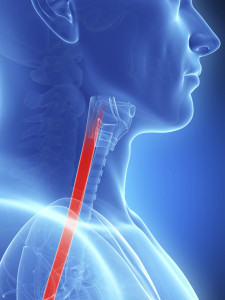Dysphagia | Difficulty Swallowing
What is Dysphagia?

Trouble swallowing, also known as dysphagia, can be a sign of a problem in your esophagus, which moves foods and liquids from your mouth to your stomach
Symptoms
The main symptom of dysphagia is difficulty swallowing, or feeling that food or liquid is getting stuck. Associated symptoms may include discomfort or pain with swallowing, gagging or chocking, feeling like food is stuck in your throat or chest, regurgitation, heartburn, or weight loss.
Causes
Dysphagia can be caused by several esophageal disorders. Narrowing of the esophagus from scar tissue, inflammation due to reflux, esophageal tumors, ulcerations, or allergic esophagus can all cause dysphagia. Older adults are at increased risk for developing dysphagia. Neurologic problems can cause dysphagia as well. This includes stroke, brain or spine injury, scleroderma, and Parkinson’s, among others.
Testing
Upper endoscopy is usually used to evaluate for the above causes of dysphagia. There are xrays of the esophagus that are frequently used as well. For some patients with significant dyshagia and negative evaluation, esophageal manometry is ordered. This test evaluates the contractions of the esophageal muscles.
Treatment
Treatment depends on the underlying cause of the dysphagia. Dietary changes or medication are frequently used, as well as esophageal dilation, which Dr.Ahmed performs at time of upper endoscopy if narrowing is present. In some patients, physical therapy or surgery are considered.
